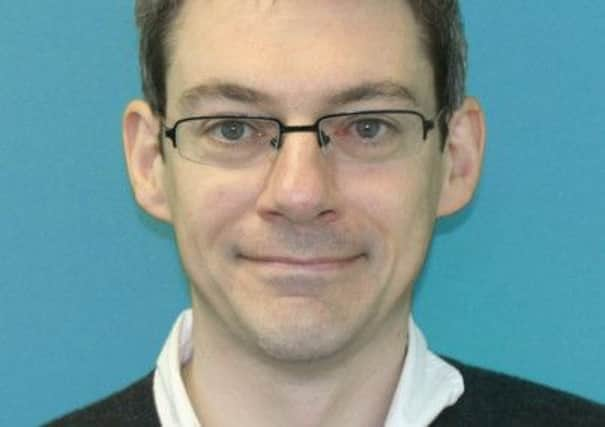Obituary: Dr Andy Calder, neuroscientist


In a distinguished, but all too short, career Andy Calder was a recognised authority in discerning the different regions of the brain. His groundbreaking research led to major new insights into the processing of social information, such as the recognition of emotions from facial expressions in conditions including autism and Huntington’s disease.
Calder’s research addressed the manner in which the human brain interprets emotional events, and in particular human signals of emotion. He was a much respected and admired colleague at the Cognition and Brain Science Unit in Cambridge (CBSU).
Advertisement
Hide AdAdvertisement
Hide AdCalder was meticulous in his research and insisted that conclusions were well presented and clearly argued. But his charm and gracious courtesy always cultivated a warm and happy atmosphere in the lab. As Professor Sophie Scott, a longtime friend and colleague at CBSU, told The Scotsman: “People liked working for Andy. He was an outstanding scientist.”
Professor Mike Burton of Aberdeen University also remembers Calder with a special pleasure. “Andy was certainly a very rigorous scientist and an inventive one too – as his legacy of highly influential work shows.
“I will miss those conversations about face processing, but I will also miss the conferences, when Andy’s gentle wit made him such a great dinner companion.
“He was a lovely man, doing excellent work, and for those reasons he is irreplaceable.”
Calder was the son of George and Kitty Calder of Edinburgh and attended St Thomas of Aquin’s High School in the capital. He then read psychology at St Andrew’s University where he was a keen athlete and cross country runner. He did his PhD at Durham and then joined the CBSU in 1995 and was appointed a programme leader in 2000.
The CBSU is one of the largest and most comprehensive research units working on the understanding of human cognition and its disorders. Its extensive research investigates the fundamental human cognitive processes such as attention, language, memory, and emotion. Calder was instrumental in initiating and developing much of that research.
Calder is fondly remembered as an ideal supervisor for students preparing their PhDs. His generosity to students who needed academic guidance was considerable and he made himself available for discussions and comment. Calder was a tolerant supervisor and a good listener.
One former student recalls: “Andy liked saying ‘okey dokey’ with smiles at the end of our discussion. He was an insightful, rigorous, and hard-working scientist.”
Advertisement
Hide AdAdvertisement
Hide AdCalder retained a genuine modesty and interest in others throughout his career.
In the lab he set himself and his colleagues high standards but his quiet authority inspired many to develop and explore fresh ideas. For Calder the science was paramount.
Calder published much of his work and won many prestigious academic awards for its clarity and lucidity. For example, the 1996 paper he wrote on his own, Facial Recognition Emotion, has been much cited by colleagues for its scholarship. The research that he initiated at CBSU will set down guidelines for further valuable work. He always returned to Edinburgh at Festival time and much enjoyed seeing family and friends and visiting Fringe events in the city.
He was a talented musician and played the piano with particular flair – anything from Abba to Chopin. While doing their PhDs, Calder and a friend performed a duet at the Durham University Ball, to hilarious success. He had the gift of combining being a noted and serious academic with an uncanny ability to not take himself too seriously.
Calder also played an important part in many theatrical productions in Cambridge and annually was a leading contributor to the pantomime.
A particularly memorable return to Edinburgh came in 1998 when he visited the exhibition, The Science of the Face, at the Scottish National Portrait Gallery. The incisive exhibition gave Calder much personal and professional pleasure – particularly the many ways in which it demonstrated the importance of the human face and how the observer perceives and recognises it.
But it was his wit and scholarship that many recall with such pleasure. Professor Scott talks for many when she recalls: “Andy was an exacting scientist – both creative and painstaking. His research was scrupulous and thorough.
“His work was widely cited in academic papers and he was a pre-eminent scientist and researcher. People liked working with him as he was a genuine and kind guy. Andy was marvellous company socially and possessed a delightful light touch which was totally endearing.”
Andy Calder, who had suffered from epilepsy for many years, died of a brain haemorrhage. He never married.